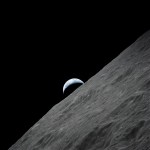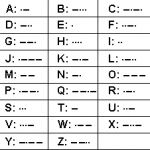mechanics
Farnsworth: "There is it. The edge of the Universe!"
Fry: "Far out. So there's an infinite number of parallel Universes?"
Farnsworth: "No, just the two."
Fry: "Oh, well, I'm sure that's enough."
Bender: "I'm sick of parallel Bender lording his cowboy hat over me!" -Futurama
Our existence here in this Universe is something that we know is rare, special, beautiful, and full of wonder.
Image credit: Kelly Montgomery.
Some things happen with amazing regularity and predictability: the occurrence of days-and-nights, the tides, the seasons, the motion of the heavenly bodies, and so much more. The…
“You wait for a gem in an endless sea of blah.” -Lawrence Grossman
On the one hand, we have General Relativity, our theory of space, time, and gravity.
Image credit: Wikimedia commons user Johnstone; Earth from NASA's Galileo mission.
It describes the Universe on both large and small scales perfectly, from the hot Big Bang to our cold accelerating expansion, from vast superclusters of galaxies down to the interiors of black holes.
Image credit: NASA, ESA, M. Postman (STScI), and the CLASH Team.
But General Relativity doesn't tell us everything. It doesn't tell us, for example,…
“I asked the Zebra,
are you black with white stripes?
Or white with black stripes?
And the zebra asked me,
Are you good with bad habits?
Or are you bad with good habits?
Are you noisy with quiet times?
Or are you quiet with noisy times?
Are you happy with some sad days?
Or are you sad with some happy days?
Are you neat with some sloppy ways?
Or are you sloppy with some neat ways?
And on and on and on and on and on and on he went.
I’ll never ask a zebra about stripes...again.” -Shel Silverstein
When it comes to the classical world -- the world on a macroscopic scale -- we all feel comfortable…
Back in July, I did a post looking at how the fountain in our ornamental backyard pond shoots higher when the level of the pond drops. I set up a simple model of the process, which worked surprisingly well, but I said at the time that I really needed more data to say whether that agreement was real or accidental. Well, yesterday, I got some extreme data:
The leak in the pond has gotten worse, I think, and the water was barely covering the top of the pump box at all. A very rough calibration of this image, using the fact that the brick is 2in high, gives a height of the spray of about 62in,…
The following is a collection of some of my posts that can be put into a simple and quick textbook-type thingy. I am not really sure you would call this a textbook, but maybe you would. This does not include everything you would normally find in a traditional textbook, but clearly it is not traditional. I tried to keep it to just the fundamental ideas. As I write more stuff that is appropriate, I will add it.
In terms of the level of this material, I would think it would be appropriate for advanced high school physics or introductory college-level physics.
I plan to update this list with…
This post has been sitting in my mind for quite some time. Really, it is about mechanics - not about pendulums. What is the goal in mechanics (classical mechanics, if you like)? Generally, it is to find out how something changes over time. If you could get an equation of motion, that would do it.
As Matt (Built on Facts) did a while ago, it can be shown that you can get the equation of motion for a mass on a spring with normal Newtonian mechanics or with Lagrangian mechanics. Let me summarize two different ways of looking at the motion of an object.
The Newtonian Way
Maybe that isn't the…
On Tuesday, I wrote a short essay on the rightful place of science in our society. As part of it, I argued that scientific knowledge is distinct from the scientific method - the latter gives people the tools with which to acquire the former. I also briefly argued that modern science education (at least in the UK) focuses too much on the knowledge and too little on the method. It is so blindsided by checklists of facts that it fails to instil the inquisitiveness, scepticism, critical thinking and respect for evidence that good science entails. Simply inhaling pieces of information won't get…
To follow up on the faster than light post here, let's ask another question:
If you can make a way of transferring information that doesn't involve matter, is that information limited by the speed of light?
First off, let's go over what information is, and then we'll talk about how transferring information without matter is even possible. Information is anything that's organized in a meaningful manner. Take a look at the following three sentences:
This sentence contains some information.
Tihs scnnteee cainntos smoe imnfriatoon.
Not a imfro nimsoe mnoisn ctrnsnet sihto.
Each of the three…
tags: Venus flytrap, plant, biology, mechanics
A Venus flytrap lies open, waiting for an insect to set off its trap. Lakshminarayanan Mahadevan and colleagues have shown that the plant uses stored elastic energy to operate its hinged leaves.
Image: Yoel Forterre.
How does the venus flytrap accomplish what most people cannot? How does a mere plant capture live flies? The mystery of the Venus flytrap's rapid movement lies in storing and releasing elastic energy, says Lakshminarayanan Mahadevan, who is the Gordon McKay Professor of Applied Mathematics and Mechanics at Harvard University.…



